#above the law
Link
#class war#class warfare#classism#the royals#the royal family#the queen#queen elizabeth#above the law#one law for them#parasite
779 notes
·
View notes
Text
By Chris Williams
New Yorkers are known for having a temper. Some blame it on the traffic and dirty water hog dogs. Personally? I blame it on the cost of living. If you compare the value of $20 in 1970 New York to $20 in the Big Apple now, the cost of living has gone up a whopping 677.46%. A big part of that increase has been housing. Back in 2012, a man ran an entire campaign premised on the rent being too damned high. But, man, if you thought New Yorkers were pissed about rent prices back then… wait until they really can’t afford rent.

Before we even get to the obvious ethical issues involved with Clarence Thomas and Samuel Alito sitting on this case despite receiving lavish gifts from landowners with a vested interest in this matter, it is worth taking a second to reflect on the Supreme Court’s drift from just a decade ago.
It would still be newsworthy if the Court decides to even hear the case. A little over a decade ago, James Harmon tried to bring a very similar case to the Supreme Court, arguing that the New York’s rent stabilization law constituted a taking. The Court ultimately decided against hearing Harmon’s case. With that in mind, read an assessment given based on that case a decade ago in The Tenant:
“If the Supreme Court chooses to consider the Harmons’ lawsuit, it would mean that four Justices—presumably Roberts, Antonin Scalia, Clarence Thomas, and Samuel Alito—believe there is a valid argument for a radical expansion of property rights, that destroying legal protections for tenants is as much an idea whose time has come as abolishing racial segregation was in 1954.”
It can be startling to see how quickly opinions on the judiciary can change. In framing the above quote, the author brought up the importance of precedent, citing cases like Roe, Brown, and Lawrence v. Texas. The thinking at the time was that even if the Court wasn’t the biggest fan of a given outcome, it’d respect the decisions of the jurists before them. Clearly written before Dobbs and Sackett, but the rest ages pretty well.
Now we’ve subbed Gorsuch into that foursome that couldn’t come together… and added Kavanaugh and Barrett.
The YOLO Court era has arrived. Because who’s to stop them?
If the Court gets rid of rent control, it is hard to understate the significance it would have on the lives of New Yorkers. From Lever News:
“Samuel Stein, a housing policy analyst at the Community Service Society, an anti-poverty organization in New York, said if the Supreme Court were to overturn the rent stabilization law, ‘It’s the end of New York City.’
‘Rents would go up significantly around the city,’ he continued. ‘There will be a tremendous amount of displacement. You will have a lot of people leaving New York City, you will have a lot of homelessness, you’ll have a lot of overcrowding.’”
There was a point in time you could rely on the Court to respect stare decisis. Dobbs and Bruen show that’s no longer the case. If ever a Court was willing to get rid of the 50+ years of rent control, it would be the Roberts court.
We should find out if they will hear the case by the end of September.
#us politics#news#above the law#op eds#2023#us supreme court#scotus#new york#rent control#twitter#tweet#david sirota#JusticeClarence Thomas#justice samuel alito#James Harmon#The Tenant#Lever News#justice neil gorsuch#justice brett kavanaugh#Justice amy Coney Barrett#rent stabilization laws
93 notes
·
View notes
Video
youtube
Prince Harry's US visa could be 'revoked' after drug admission
US border agents take a dim view of drug use by non-US citizens, Sky News Australia host Piers Morgan says, as concerns mount over Prince Harry's visa status following his public admission to drug use.
I would like to add another viewpoint. Allegedly they have two kids, and when a Children’s Aid Society or similar organization hears this, the alarm bells will go off, especially over abusing hard drugs. They will want to look into their home life with a magnifying glass with the view of is this home a stable environment for the children? Harry admits to using drugs, that leaves Meghan the narc. Not a pretty picture at all of Montecito family life, or where ever they actually live.
111 notes
·
View notes
Text

Made another Above the Law patch back in August, because I still had some smaller pieces of fabric after a bigger project. This one does not glow in the dark.
I also used three strings of yarn (out of six) and a more coarse fabric.
The pattern was created by @prurientpuddlejumper
32 notes
·
View notes
Text
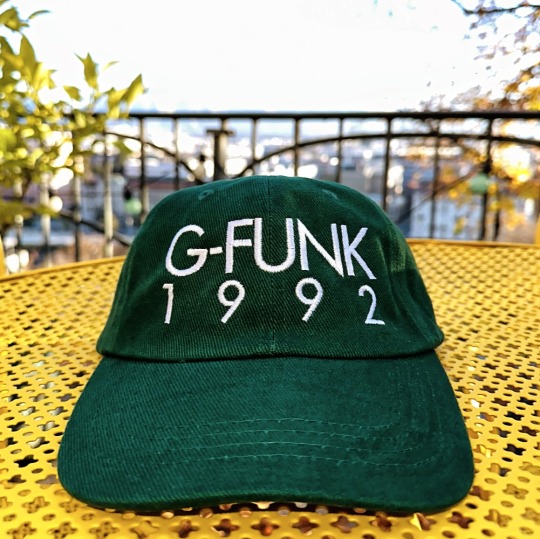
-> https://ichichundunddudu.bigcartel.com/product/g-funk-1992-hat
#old school#rap#hip hop#music#g funk#west coast#1992#90s#polo ralph lauren#polo#above the law#dr. dre#snoop dogg#vintage#westcoast#fashion#style#dad hat
12 notes
·
View notes
Photo

#above the law#atl#ruthless#1991#90s hip hop#west coast#new york#cold 187um#kmg#go mack#dj total k-oss
50 notes
·
View notes
Text
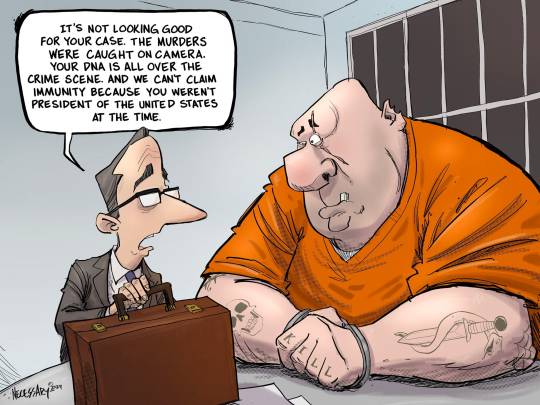
Kevin Necessary
* * * *
LETTERS FROM AN AMERICAN
April 25, 2024
HEATHER COX RICHARDSON
APR 26, 2024
“I am in shock that a lawyer stood in the U.S. Supreme Court and said that a president could assassinate his political opponent and it would be immune as ‘an official act,’” lawyer Marc Elias, whose firm defends democratic election laws, wrote today on social media. He added: “I am in despair that several Justices seemed to think this answer made perfect sense.”
Elias was referring to the argument of Trump’s lawyer before the Supreme Court today that it could indeed be an “official act” for which a president should be immune from criminal prosecution if “the president decides that his rival is a corrupt person and he orders the military or orders someone to assassinate him.”
The Supreme Court today heard close to three hours of oral argument over Trump v. United States, which concerns former president Trump’s claim of absolute immunity from criminal charges for “official acts”: in this case, his attempt to overturn the lawful results of the 2020 presidential election and to stay in office against the will of the voters.
That is, like the authoritarian leaders he admires, Trump tried to steal the 2020 presidential election and seize the presidency. Sometimes I worry that the enormity of that crime against our democracy is becoming normalized.
It was not normalized by grand jury members who reviewed the evidence of that effort; they indicted Trump in August 2023 on four counts. But Trump responded by claiming that a president cannot be prosecuted for official acts and that a former president cannot be prosecuted unless the House of Representatives has impeached him and the Senate convicted him.
Justice Clarence Thomas, whose wife, Ginni, participated in that effort, did not recuse himself from today’s hearing, and the court did not object to his presence.
Ruth Marcus of the Washington Post noted that the justices on the court seemed to be weighing “which poses the greater risk—putting a criminal president above the law or hamstringing noncriminal presidents with the risk of frivolous or vindictive prosecutions brought by their successors.”
The liberals on the court focused on the former—after all, the case is about whether Trump should answer to criminal indictments for trying to overturn our democracy. Justice Ketanji Brown Jackson noted: “If someone with those kinds of powers, the most powerful person in the world with the greatest amount of authority, could go into office knowing that there would be no potential penalty for committing crimes, I’m trying to understand what the disincentive is from turning the Oval Office into, you know, the seat of criminal activity in this country.”
In contrast, the right-wing justices focused on the risk of vindictive prosecutions, which has been the heart of Trump’s argument for complete immunity. Trump insists that without immunity, a president will be afraid to make controversial decisions out of fear of later prosecution. Such a lack of immunity would destroy the presidency, he has argued, claiming that he is simply trying to protect the office.
And yet he is the first of 45 presidents to be charged with a crime, and no previous president made any claim of immunity.
Nonetheless, the right-wing justices made it clear they were more interested in the future than in the present. In their comments they stayed far away from Trump and focused instead on presidents in the past and the future. (Conservative judge Michael Luttig noted: “The Court and the parties discussed everything but the specific question presented.”)
Justice Neil Gorsuch said: “I’m not concerned about this case, but I am concerned about future uses of the criminal law to target political opponents based on accusations about their motives.” Justice Samuel Alito tried to turn the argument for accountability upside down by suggesting that complete immunity would be more likely to encourage presidents to leave office, because if a president knew they could be prosecuted for crimes, they would be less likely to leave peacefully.
Indeed, Marcus wrote: “The conservative justices’ professed concerns over the implications of their rulings for imaginary future presidents, in imaginary future proceedings, seemed more important to them than bringing Trump to justice.” Constitutional law professor Anthony Michael Kreis was more concrete in his reaction; he found it “[u]nbelievable that Supreme Court justices who see forgiving student loans, mandating vaccines, and regulating climate change as a slippery slope toward tyranny were not clear-eyed on questions of whether a president could execute citizens or stage a coup without being prosecuted.”
The court’s decision will likely take weeks and thus will delay Trump’s trial for crimes committed in his attempt to overturn the results of the 2020 election, likely until after the 2024 election. On Monday, April 22, former representative Liz Cheney (R-WY), who served as vice chair of the House Select Committee to Investigate the January 6th Attack on the U.S. Capitol, called out Trump’s attacks on the legal system and delays to avoid accountability. In a New York Times op-ed, Cheney reminded the justices that delay would mean that the American people would not get to hear the testimony and evidence Special Counsel Jack Smith has uncovered before the 2024 election.
“It cannot be that a president of the United States can attempt to steal an election and seize power but our justice system is incapable of bringing him to trial before the next election four years later,” she wrote.
And yet, here we are.
Voters’ right to know what a candidate for president did to overthrow the will of the people in a previous election is at stake in today’s arguments. But so is the rule of law on which our democracy stands. The rule of law means that laws are made according to established procedures rather than a leader’s dictates, and that they are reasonable. Laws are enforced equally. No one is above the law, and everyone has an obligation to obey the law.
As Justice Elena Kagan noted today: “The framers did not put an immunity clause into the Constitution. They knew how to; there were immunity clauses in some state constitutions. They didn’t provide immunity to the president. And, you know—not so surprising—they were reacting against a monarch who claimed to be above the law. Wasn’t the whole point that the president was not a monarch and the president was not supposed to be above the law?”
Indeed.
“[W]here, say some, is the King of America?” Thomas Paine wrote in Common Sense, the 1776 pamphlet that convinced British colonists in North America to cut ties with their king and start a new nation. “[I]n America the law is king. For as in absolute governments the King is law, so in free countries the law ought to be king; and there ought to be no other.”
LETTERS FROM AN AMERICAN
HEATHER COX RICHARDSON
#corrupt SCOTUS#criminal SCOTUS#Opus Dei SCOTUS#Heather Cox Richardson#Letters From An American#Immunity#the King of America#rule of law#above the law#equal under the law#the US Constitution
4 notes
·
View notes
Text
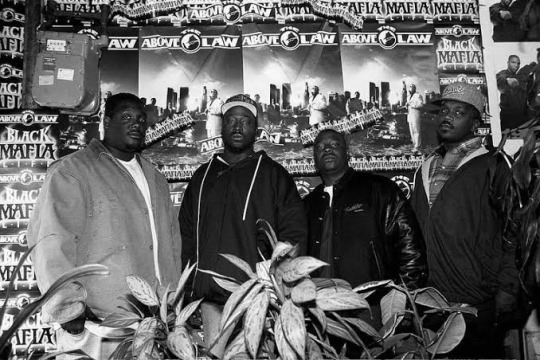
11 notes
·
View notes
Photo

Above the Law (Andrew Davis, 1988)
86 notes
·
View notes
Text

From "The Torch Goes Wild!" in Strange Tales #119, April 1964. Stan Lee script, Dick Ayers co-plot, pencils, and inks, Stan Goldberg(?) colors, Sam Rosen letters. Photoshop color reduction.
#the torch goes wild#strange tales#strange tales 119#marvel#marvel comics#johnny storm#human torch#the human torch#above the law#stan lee#dick ayers#sam rosen#comic#comics#comic book#comic books#comic panel#comic panels#take it like a man#1960s
3 notes
·
View notes
Text

122 notes
·
View notes
Photo



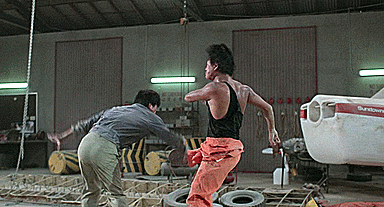
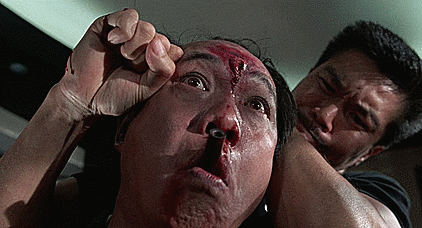


Righting Wrongs (1986)
#Righting Wrongs#Biao Yuen#Cynthia Rothrock#Melvin Wong#Corey Yuen#Zhi fa xian feng#above the law#Hong Kong#hong kong cinema#80s action movies#martial arts#filmedit#80s movies#80s film#80s
48 notes
·
View notes
Text


3 notes
·
View notes
Text


Above the Law Cross-Stitch patch with glow in the dark yarn.
The pattern was created by @prurientpuddlejumper
23 notes
·
View notes
Text
BY JOE PATRICE
In United States v. Rahimi, the Fifth Circuit ruled that a guy who voluntarily agreed to a court order — entered to resolve a domestic violence claim — barring him from owning guns cannot be criminally convicted for violating a court order prohibiting him from owning guns because of the Second Amendment. In doing so, the court reasoned — as we’ve seen before — that since domestic violence existed in the 18th century and the Framers didn’t punish abusers for having guns then, it can never pass a law to do it now.
No, seriously, that’s the logic. See Rahimi at 11.
But there’s a lot being written about the majority opinion. Let’s focus on the concurrence because that’s where Judge James Ho shines. And by “shines,” we mean turns in shoddy research that would get a first-year associate fired.
As a recap, here are the facts of the case:
Between December 2020 and January 2021, Rahimi was involved in five shootings in and around Arlington, Texas. On December 1, after selling narcotics to an individual, he fired multiple shots into that individual’s residence. The following day, Rahimi was involved in a car accident. He exited his vehicle, shot at the other driver, and fled the scene. He returned to the scene in a different vehicle and shot at the other driver’s car. On December 22, Rahimi shot at a constable’s vehicle. On January 7, Rahimi fired multiple shots in the air after his friend’s credit card was declined at a Whataburger restaurant.
That’s not a fact-pattern, that’s 15 minutes in GTA Online.
The spree resulted in law enforcement searching his home and finding firearms. However, Rahimi had voluntarily agreed to a court order barring him from possessing firearms to settle a domestic violence claim lodged by his ex-girlfriend. Having been found with guns despite a court order (again, an order that he agreed to) prohibiting him from having guns, a grand jury indicted Rahimi under 18 U.S.C. § 922(g)(8). He would then plead guilty because he was, you know, guilty. Then he realized that he lived within the Fifth Circuit and launched a broadside against the constitutionality of his conviction, which the court approved.
Now to the concurrence.
Judge James Ho, thirsty as a lost wanderer in the Mojave for any opportunity to ingratiate himself to any future Republican administration that might elevate him to the Supreme Court, writes separately:
The right to keep and bear arms has long been recognized as a fundamental civil right. See, e.g., Johnson v. Eisentrager, 339 U.S. 763, 784 (1950) (describing the First, Second, Fourth, Fifth, and Sixth Amendments as the “civil-rights Amendments”); Konigsberg v. State Bar of Cal., 366 U.S. 36, 49–50 n.10 (1961).
It’s always difficult for conservative judges to find support for their “deeply historical” analysis of the Second Amendment since it doesn’t exist. Even the majority opinion explicitly notes that, “In Emerson, we held that the Second Amendment guarantees an individual right to keep and bear arms—the first circuit expressly to do so.” Since Emerson was decided in 2001, this is just letting pride get in the way of Originalist gaslighting. Come on, Fifth Circuit! You can’t go around admitting that the individual right to gun possession is barely old enough to drink.
So kudos to Judge Ho for trying to build a historical case! Unfortunately, neither of these cited opinions have much to do with the Second Amendment.
And they both… prove the opposite of what he’s arguing.
Eisentrager is about federal jurisdiction over Nazi war criminals. The Second Amendment does come up, but in a very particular way. Eisentrager concludes that war criminals held in Germany, who have never been inside the US, do not have access to US constitutional rights. By way of analogy, Justice Jackson explains that extending rights in this way would justify giving guerrilla fighters unchecked access to guns.
If the Fifth Amendment confers it rights on all the world except Americans engaged in defending it, the same must be true of the companion civil rights Amendments, for none of them is limited by its express terms, territorially or as to persons. Such a construction would mean that, during military occupation, irreconcilable enemy elements, guerrilla fighters, and “were-wolves” could require the American Judiciary to assure them freedoms of speech, press, and assembly as in the First Amendment, right to bear arms as in the Second, security against “unreasonable” searches and seizures as in the Fourth, as well as rights to jury trial as in the Fifth and Sixth Amendments.
The Court’s point here is to highlight the absurdity of extending these rights to foreign combatants to prevent the military from blanket disarming enemy troops. It’s a stretch to extend this to support the claim that the Court thought that the Second Amendment doesn’t countenance regulations that would bar criminals from having guns within the United States. Indeed, several of the Justices on this opinion were on the Miller opinion that directly laid out that this was not the meaning of the Second Amendment.
But as bad as that citation may be, Konigsberg is somehow worse.
Konigsberg is about swearing that you aren’t a communist to get admitted to the bar (maybe that’s what we need to deal with all these woke Biglaw lawyers!). But the funny part of this citation is that the specific footnote Ho points to… reaches the opposite conclusion. While the case is about the First Amendment, Justice Harlan ends this footnote with the sentence, “In this connection, also compare the equally unqualified command of the Second Amendment: ‘the right of the people to keep and bear arms shall not be infringed.'” This ignores the whole “well regulated” part, which is dictionary definition of a qualification, but set that aside.
Judge Ho appears to have seen “unqualified command of the Second Amendment” and called it a day. EXCEPT that’s the antithesis of the whole footnote.
The sentence attached to the footnote is: “At the outset, we reject the view that freedom of speech and association, as protected by the First and Fourteenth Amendments, are ‘absolutes,’ not only in the undoubted sense that, where the constitutional protection exists it must prevail, but also in the sense that the scope of that protection must be gathered solely from a literal reading of the First Amendment.” Footnote 10 in full:
That view, which, of course, cannot be reconciled with the law relating to libel, slander, misrepresentation, obscenity, perjury, false advertising, solicitation of crime, complicity by encouragement, conspiracy, and the like, is said to be compelled by the fact that the commands of the First Amendment are stated in unqualified terms: “Congress shall make no law . . . abridging the freedom of speech, or of the press; or the right of the people peaceably to assemble. . . .” But as Mr. Justice Holmes once said:
“[T]he provisions of the Constitution are not mathematical formulas having their essence in their form; they are organic living institutions transplanted from English soil. Their significance is vital, not formal; it is to be gathered not simply by taking the words and a dictionary, but by considering their origin and the line of their growth.”
Gompers v. United States, 233 U. S. 604, 233 U. S. 610. In this connection, also compare the equally unqualified command of the Second Amendment: “the right of the people to keep and bear arms shall not be infringed.” And see United States v. Miller, 307 U. S. 174.
Justice Harlan contends here that just because the First Amendment reads as “unqualified,” it doesn’t mean that the law treats it as such. He then throws in the Second Amendment specifically for the purpose of underscoring this point. It’s included to convey: “See, this is written to be unqualified too and literally no one is stupid enough to think the Constitution intends to create an unfettered individual right to guns.”
How did something so sloppy end up in an appellate opinion? Obviously, there’s a dearth of historical precedent for the proposition that the Second Amendment affords an individual right to gun ownership, but armed with AI-facilitated caselaw search tools all he could come up with for pre-2001 support is an opinion from 1961 that concludes the opposite way?!?!
This guy needs to stop boycotting elite law school clerks, because he needs some serious research help.
#us politics#news#above the law#op eds#Joe Patrice#us fifth circuit court of appeals#United States v. Rahimi#domestic violence#gun rights#gun control#gun violence#second amendment#Judge James Ho#texas#Johnson v. Eisentrager#Konigsberg v. State Bar of Cal.#United States v. Miller#Gompers v. United States#us constitution#United States v. Emerson#fifth amendment#2023
19 notes
·
View notes
Text
Rest In Peace Henry Silva!








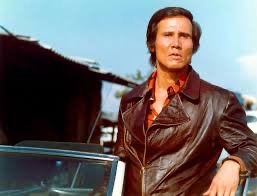
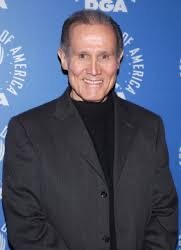
#henry silva#megaforce#ghost dog the way of the samurai#alligator#code of silence#buck rogers#above the law#sharkys machine#movies#oceans 11#the manchurian candidate
49 notes
·
View notes